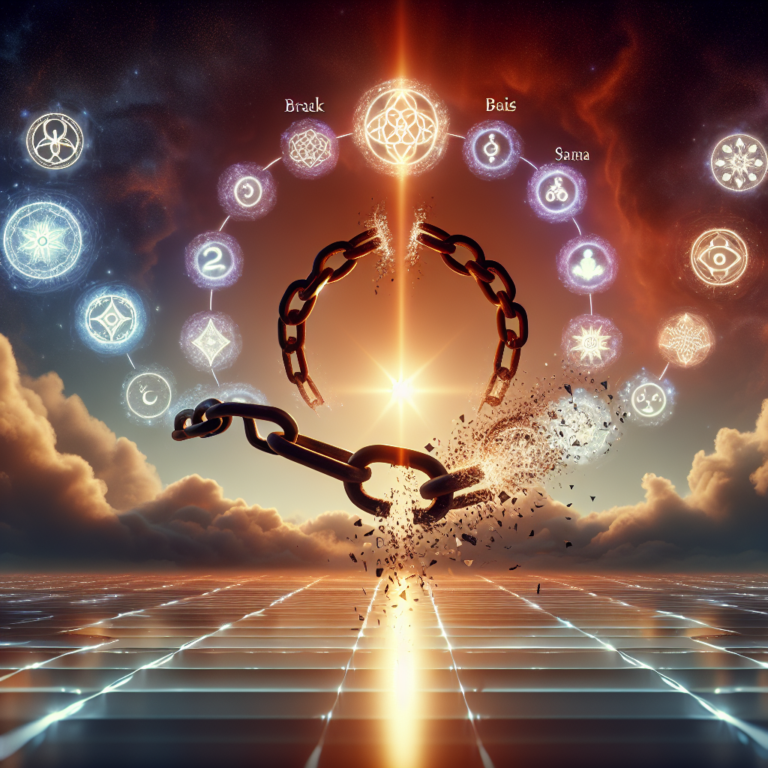Karma and Emotional Healing: How Past Actions Shape Our Present Peace
Karma, a concept deeply rooted in Eastern philosophies, particularly in Hinduism and Buddhism, refers to the idea that our actions—both good and bad—carry consequences that shape our future experiences. While traditionally viewed through a spiritual or moral lens, karma can also be applied to emotional healing, shedding light on how our past actions influence our present emotional well-being.
At its core, karma teaches us about the interconnectedness of actions, intentions, and outcomes. Understanding this connection is vital in the journey of emotional healing. It fosters self-awareness and encourages personal responsibility, which can lead to profound transformations in our mental state and relationships with others.
The Relationship Between Karma and Emotional Healing
Understanding Our Actions:
Every choice we make sends ripples into the universe, affecting not only our lives but also the lives of those around us. When we reflect on our past actions, especially the painful ones, we can begin to identify patterns in our emotional responses. For instance, hurtful actions often yield guilt or shame, and these emotions can persist long after the incident has occurred.The Cycle of Cause and Effect:
Karma emphasizes that our current emotional struggles may stem from previous actions—both ours and those of others. A person who has consistently been selfish may find themselves isolated, while someone who prioritizes compassion may cultivate strong, supportive relationships. By recognizing these cycles, individuals can begin to understand their emotional states better and address the root causes of their distress.Forgiveness as a Healing Tool:
A fundamental aspect of emotional healing is forgiveness—of ourselves and others. Acknowledging past actions and their consequences can help us find peace. The act of forgiveness releases the grip of negative emotions associated with those actions, allowing us to move forward unburdened. This notion aligns perfectly with karma; by forgiving, we can break the cycle of negativity and begin to rewrite our own karmic narrative.Setting Intentions for Change:
Understanding the karmic implications of our actions empowers us to set clear intentions for change. If we recognize that our current suffering is linked to our past choices, we can consciously choose to act differently in the present. By demonstrating kindness, empathy, and understanding, we create positive karma that can lead to emotional healing not just for ourselves, but for those we encounter.- Embracing Accountability:
Emotional healing is facilitated when we acknowledge our role in our circumstances. Accepting accountability for our actions can be difficult; however, it promotes personal growth. When we hold ourselves responsible for the impact of our actions, it inspires a deeper understanding of how collective experiences shape our emotional landscape.
Practical Steps for Integrating Karma into Emotional Healing
Self-Reflection Journaling:
Keeping a journal dedicated to documenting actions and feelings can illuminate patterns. Write down specific incidents in which you felt pain or joy and reflect on the actions that led to those outcomes. Identify ways to make amends if possible, and set intentions for future behavior.Mindfulness and Meditation:
Practicing mindfulness helps bring awareness to the present moment. By engaging in meditation, you can explore the depths of your emotions and acknowledge how past actions resonate within you. This practice can be a portal to profound self-understanding and emotional release.Therapy and Professional Guidance:
Sometimes, navigating the intricacies of karma and emotional healing requires support from a professional. Therapists can provide insights into behavioral patterns tied to past actions and help you cultivate healthier coping mechanisms.Acts of Kindness:
Engage in random acts of kindness. Consciously choose to act in ways that promote positivity. By doing so, you begin to create new, positive karmic energy that enhances your emotional landscape.- Cultivating Gratitude:
Reflection on the good aspects of your life and acknowledging them can pave the way for emotional healing. Recognizing the positive outcomes of your past good deeds can help you build resilience against negative feelings tied to your previous actions.
The Interconnectedness of All Beings
Karma embodies the idea that our existence is intertwined with the experiences of others. Emotional healing, when viewed through this lens, becomes a collective endeavor. As we heal, we contribute to the healing of those around us. When we choose love, kindness, and understanding, we spread that energy into our community, fostering a ripple effect of positivity.
The journey to emotional healing is not a solitary one. It reflects our relationships and interactions, and as such, our emotional well-being is deeply influenced by the karmic principles of action and consequence.
Conclusion
Karma and emotional healing are intricately woven together, underscoring the profound impact our past actions hold over our present emotional state. By embracing the lessons of karma—accountability, forgiveness, and the intention to change—we can embark on a transformative journey of self-discovery and healing. As we work to mend ourselves, we contribute to a larger tapestry of interconnectedness that enriches the lives of all we encounter.
FAQs
Q1: How can I begin to understand my karma?
A: Start by reflecting on your past actions and their consequences. Journaling about significant events in your life can help illuminate patterns and areas you may wish to change.
Q2: Can karma affect my current relationships?
A: Yes, karma can significantly impact your relationships. Understanding how your past actions influence your current behavior can help you foster healthier connections with others.
Q3: Is forgiveness necessary for emotional healing?
A: Forgiveness is a critical component of emotional healing. It allows you to release negative emotions and break free from the cycles of pain associated with past actions.
Q4: How can I create positive karma?
A: You can create positive karma by engaging in acts of kindness, empathy, and generosity. Aligning your actions with intentions of love and support contributes to a positive karmic cycle.
Q5: Do I have to believe in karma to benefit from these concepts?
A: No, you do not need to believe in karma as a spiritual principle to apply its teachings. The ideas of accountability and cause-and-effect can resonate on a practical level for emotional healing.
It seems like you might be looking for a specific prompt or idea for a creative writing piece, discussion topic, or project. Could you please provide more context or specify the type of prompt you need? For example, are you looking for a writing prompt, a brainstorming question, or something else?, #Karma #Emotional #Healing #Actions #Shape #Present #Peace, #Karma #Emotional #Healing #Actions #Shape #Present #Peace, 1736724175, karma-and-emotional-healing-how-past-actions-shape-our-present-peace





